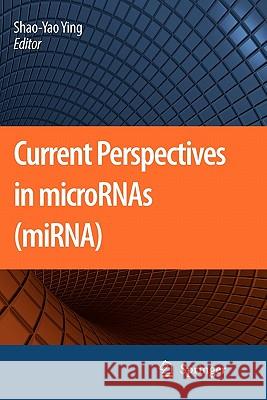Current Perspectives in Micrornas (Mirna) » książka
Current Perspectives in Micrornas (Mirna)
ISBN-13: 9789048179039 / Angielski / Miękka / 2010 / 464 str.
Nearly 97% of the human genome is the non-coding DNA, which varies from one species to another, and changes in these sequences are frequently noticed to manifest clinical and circumstantial malfunction. Numerous non-protein-coding genes are recently found to encode microRNAs, which are responsible for RNA-mediated gene silencing through RNA interference (RNAi)-like pathways. MicroRNAs (miRNAs), small single-stranded 17 25 nucleotide RNAs capable of interfering with intracellular messenger RNAs (mRNAs) that contain either complete or partial complementarity, are useful for the design of new therapies against cancer polymorphism and viral mutation. Currently over 1000 native miRNA species found in vertebrates and many more new miRNA homologs continue to be identified; however, most of their functions remain to be determined. In this book, many new perspectives of the miRNA research are reviewed and discussed, including their roles in stem cell maintenance, embryonic development, tissue differentiation, adult physiology, disease pathology, cancer research, viral infection, genetic engineering in plants, and utility in cosmetic applications. These new findings may not only provide significant insight into the various mechanisms of miRNAs but also offer a great opportunity in developing new therapeutic interventions."











